Vitamin B is actually a combination of several water-soluble vitamins known among us as vitamin B-complex. One of the main functions of this vitamin is that it boosts metabolism and gives energy.
If you suffer from hair loss, dry skin and brittle nails, then you may be deficient in vitamin B and need this vitamin urgently. It is a main ingredient in many cosmetic products.
Foods often contain several types of B-vitamins. When eating a variety of foods, the body easily acquires different B vitamins. They are most commonly found in pork, nuts, milk, grains and eggs. All the B vitamins work together and when a person is deficient in one vitamin, it is very likely that another B vitamin is also deficient.
Vitamins include:
Vitamin B1: Thiamine
Also known as spiritual vitamin because it improves brain function immensely. This vitamin has a beneficial effect on the metabolism of carbohydrates, on the nervous system, the muscular system, etc. Most often, vitamin B1 is needed by lactating women, pregnant women, smokers and people who drink alcohol frequently. Vitamin B1 can be found in: brewer's yeast, peanuts, mushroom dishes, asparagus, pea recipes, parsley, wheat seeds and others.
Symptoms of vitamin B1 deficiency
Irregular appetite - as the appetite is consciously activated or stopped in the hypothalamus, a lack of vitamin B1 can disrupt the appetite and there can be a constant feeling of hunger or, conversely, satiety contrary to the pounds, which accumulate from nothing.
Anxiety and depression are common with vitamin B1 deficiency and have both a mental and physical impact. Digestive problems are possible - vitamin B1 is involved in the metabolism of macronutrients, i.e. small particles that enter our body through food in the form of proteins, carbohydrates and lipids. An optimal intake of vitamin B1 helps the body in its survival function - breathing, digestion and blood circulation in the body.
Vitamin B2: Riboflavin
This vitamin is recommended for poor vision, inflammation in the oral cavity, it also enhances fat metabolism. Foods rich in vitamin B2 are: radish leaves, beets, carrot salads, turnips, etc. Vitamin B2 is also found in walnuts, almonds, peanuts, apples, apricots, papaya and other exotic fruit.
Symptoms of vitamin B2 deficiency
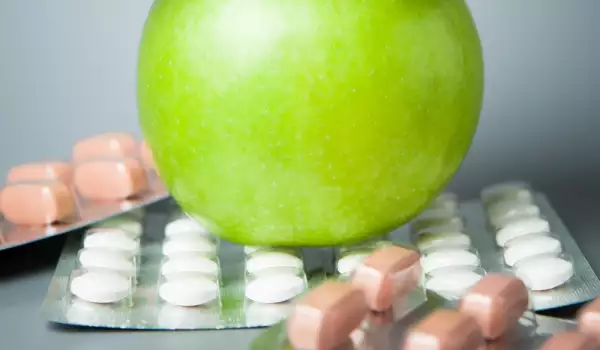
Some of the manifestations of vitamin B2 deficiency have a dermatological nature. This way, due to a lack of vitamin B2, a person may have symptoms such as: cracks in the corners of the mouth, chapped lips, dry skin, inflammation of the oral mucosa, inflammation of the tongue, canker sores in the mouth, red lips, dermatitis, fluid accumulation in the mucous membranes. In addition, people who have a deficiency of vitamin B2 in the body can have iron deficiency anemia. Also, there are some people whose doctor recommends taking vitamin B2 because it slows or helps sickle cell disease. Besides anemia, another manifestation of vitamin B2 deficiency is dizziness and fatigue.
Vitamin B3: Niacinamide
It is useful for migraines, stomach ulcers, blood circulation, bad breath, etc. Found in salmon, tuna, seaweed, chicken, venison, etc. Vitamin B3 is found in large quantities mostly in meats than in vegetables.
Symptoms of vitamin B3 deficiency
Weight loss associated with decreased appetite also occurs after the onset of vitamin B3 deficiency. Fatigue and muscle weakness are the most common manifestations of vitamin B3 deficiency. The skin also suffers from vitamin B3 deficiency. Dermatitis, for example, is favored by a lack of niacin. At the same time, ulcers in oral mucosal cancer appear against the background of insufficient vitamin B3 intake.
Vitamin B5: Pantothenic acid
It is important for cell building, hair growth and adrenal gland function. It is found in tomatoes, strawberries, turnips, eggs, yogurt, broccoli and others.
Symptoms of vitamin B5 deficiency
Symptoms of vitamin B5 deficiency are expressed in pain in the legs, numbness, burning sensation, disorientation, lack of tonicity, drowsiness. This condition is rare, but it emphasizes the interdependence of the B vitamins, and therefore many researchers believe that the symptoms of B5 deficiency are primarily the symptoms of a deficiency of the entire vitamin complex.
Vitamin B6: Pyridoxine
This vitamin is important for building antibodies and red blood cells. Vitamin B6 is necessary for people who perform heavy physical work. It is found in bananas, walnuts, peanuts, beef and others.
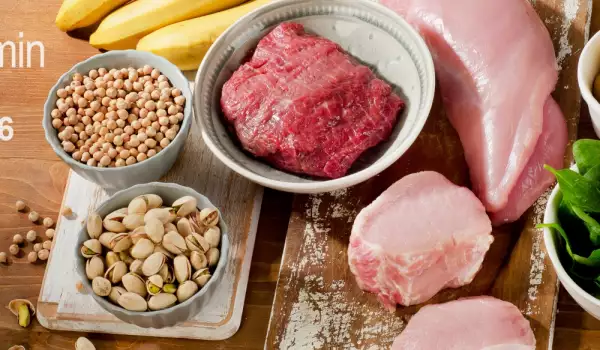
Symptoms of vitamin B6 deficiency
In some cases, a symptom of vitamin B6 deficiency can be weight loss. Seek professional advice if you have unexplained weight loss, as this may mask other causes that may is not related to vitamin B6 deficiency. Vitamin B6 deficiency can lead to inflammation of the tongue and oral cavity. Sometimes there is inflammation and cracking of the lips. If you are deficient in vitamin B6, your tongue may become swollen, sensitive, sore or red. This condition is called glossitis (inflammation of the tongue).
Vitamin B7: Biotin
This vitamin has a beneficial effect on muscles, skin, nails, reduces hair loss and gray hairs. It is found in soybeans, fish, almonds, broccoli, potatoes and others.
Symptoms of vitamin B7 deficiency
Chronic fatigue is the first symptom of vitamin B7 deficiency. A patient who does not receive the minimum required intake of biotin will have to deal with physical and mental exhaustion for no particular reason. A study by Swiss researchers shows that one-third of women suffering from biotin deficiency also have seborrheic dermatitis. This condition can be alleviated by combating vitamin B7 deficiency. Intestinal disorders can also convey a deficiency of vitamin B7 in the body. Frequent diarrhea, abdominal cramps and other intestinal symptoms can be attributed to biotin deficiency.
Vitamin B8: Inositol
Choline supports brain and liver function. It prevents the accumulation of cholesterol in the arteries. It is found in rice, wheat, tomatoes, watermelon and others.
Symptoms of vitamin B8 deficiency
Although its deficiency is rare, symptoms that indicate biotin deficiency include hair loss (often with loss of color) and red and scaly rashes around the eyes, nose and mouth. Other symptoms that may also occur are depression, absent-mindedness, and tingling in the hands and feet.
Taking high doses of pantothenic acid (vitamin B8) or treatment with certain drugs (such as antibiotics and some anticonvulsants) can affect the intestinal absorption of biotin, causing it to decrease.
Vitamin B9: Folic Acid
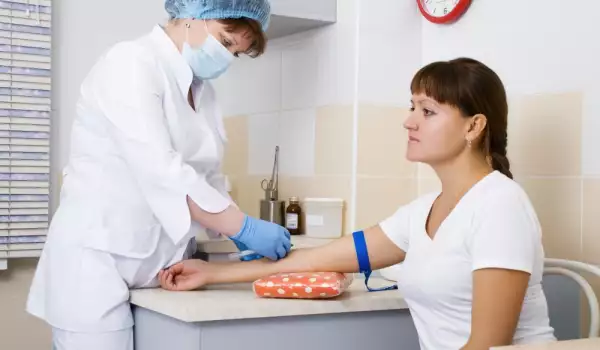
It supports the burning of fats and the body, protects against intestinal infections and others. It is found in green fruits and vegetables, as well as in black bread.
Symptoms of vitamin B9 deficiency
Megaloblastic anemia occurs due to a deficiency of folic acid or due to a lack of vitamin B12. In the first phase, it can be asymptomatic, but in some situations neurological damage can occur, so it is important to diagnose and fight this type of anemia.
Vitamin B10: Para-aminobenzoic acid
If there is a lack of this B vitamin in the body, skin eczema may appear, hair may begin to turn gray faster. It is contained in cereal plants, potatoes, liver, walnuts, fish, etc.
Symptoms of vitamin B10 deficiency
Signs can be expressed in hormonal disorders, skin irritations, changeable mood, changes in sleep. Other signs of deficiency of this vitamin is slow growth. The same goes for other hair problems.
Vitamin B12: Cyanocobalamin
It helps in the formation of red blood cells. It is found in meat, fish dishes, dairy products and others.
Symptoms of vitamin B12 deficiency
Vitamin B12 deficiency is characterized, among other things, by megaloblastic anemia (manifested by a decrease in the number of red blood cells due to insufficient levels of vitamin B12 in the body). Symptoms of vitamin B12 deficiency can also include muscle pain, muscle weakness, especially when a person notices that they have difficulty moving.
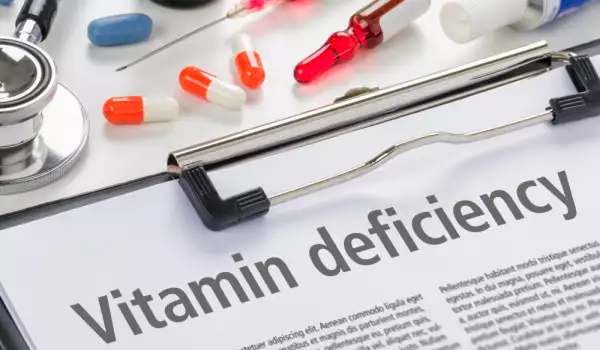
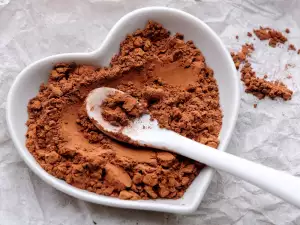
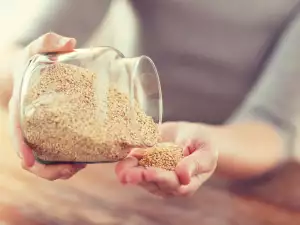







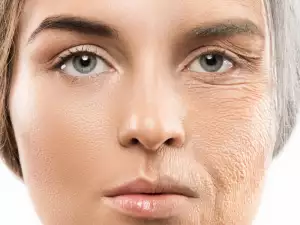


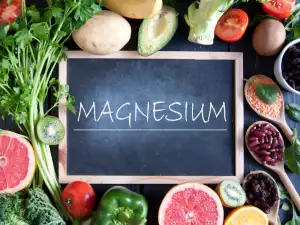






Comments